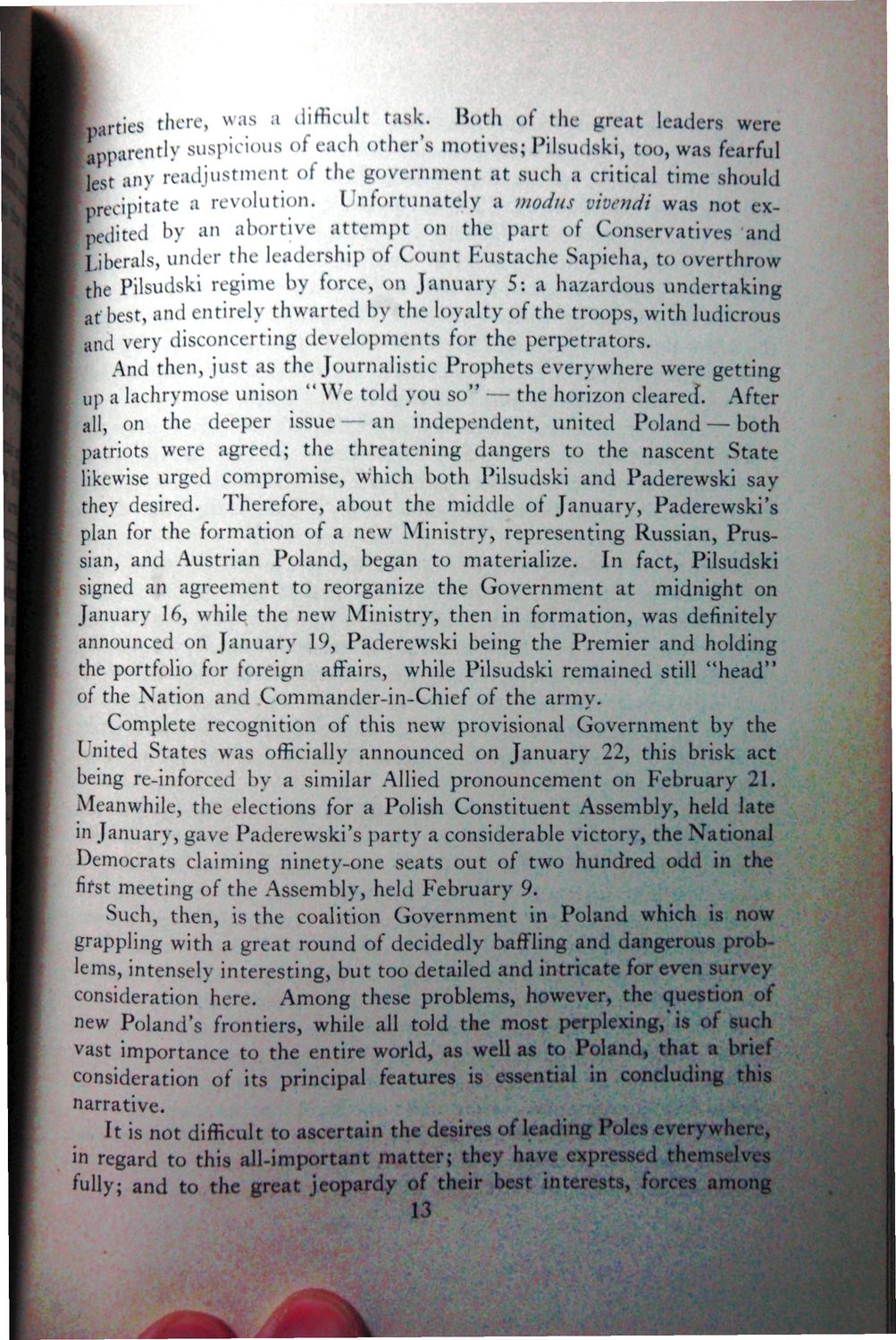| |
| |
Caption: War Publications - WWI Compilation 1923 - Article 24
This is a reduced-resolution page image for fast online browsing.

EXTRACTED TEXT FROM PAGE:
mrtics there, was a difficult task. Both of the great leaders were apparently suspicious of each other's motives; Pilsudski, too, was fearful ]est any readjustment of the government at such a critical time should precipitate a revolution. Unfortunately a modus vivendi was not expedited by an abortive attempt on the part of Conservatives and Liherals, under the leadership of Count Kustache Sapieha, to overthrow the Pilsudski regime by force, on January 5: a hazardous undertaking at hest, and entirely thwarted by the loyalty of the troops, with ludicrous ami very disconcerting developments for the perpetrators. And then, just as the Journalistic Prophets everywhere were getting M up a lachrymose unison We told you so* — the horizon cleared. After all, on the deeper issue — an independent, united Poland — both patriots were agreed; the threatening dangers to the nascent State likewise urged compromise, which both Pilsudski and Paderewski say they desired. Therefore, about the middle of January, Paderewski's plan for the formation of a new Ministry, representing Russian, Prussian, and Austrian Poland, began to materialize. In fact, Pilsudski signed an agreement to reorganize the Government at midnight on January 16, while the new Ministry, then in formation, was definitely announced on January 19, Paderewski being the Premier and holding the portfolio for foreign affairs, while Pilsudski remained still "head" of the Nation and Commander-in-Chief of the armv. Complete recognition of this new provisional Government by the United States was officially announced on January 22, this brisk act bei ng re-inforeed by a similar Allied pronouncement on February 21. M eanwhile, the elections for a Polish Constituent Assembly, held late in January, gave Paderewski's party a considerable victory, the National Democrats claiming ninety-one seats out of two hundred odd in the first meeting of the Assembly, held February 9. Such, then, is the coalition Government in Poland which is now grappling with a great round of decidedly baffling and dangerous problems, intensely interesting, but too detailed and intricate for even survey consideration here. Among these problems, however, the question of new Poland's frontiers, while all told the most perplexing, is of such vast importance to the entire world, as well as to Poland, that a brief consideration of its principal features is essential in concluding this narrative. It is not difficult to ascertain the desires of leading Poles everywhere, in regard to this all-important matter; they have expressed themseh s fully; and to the great jeopardy of their best interests, forces among 13
| |